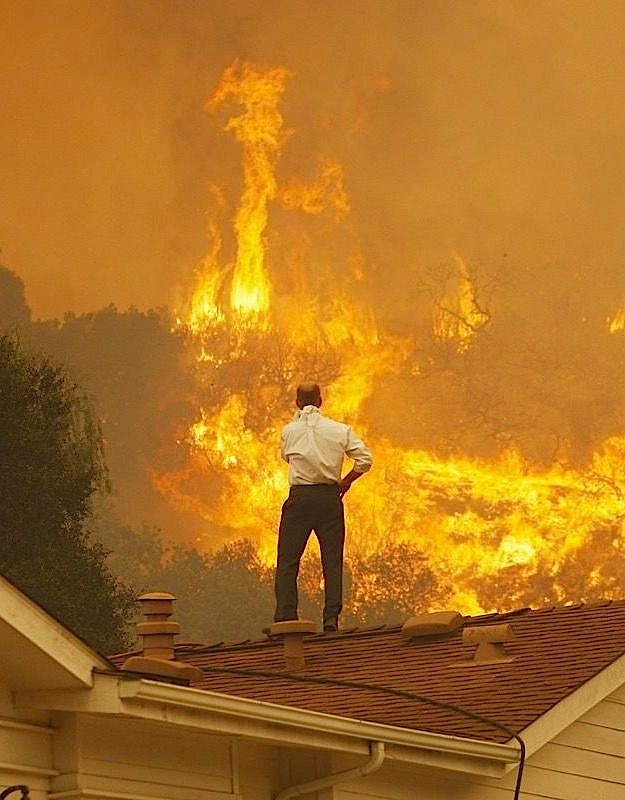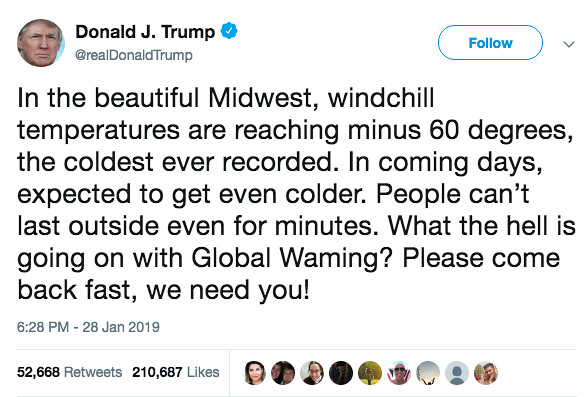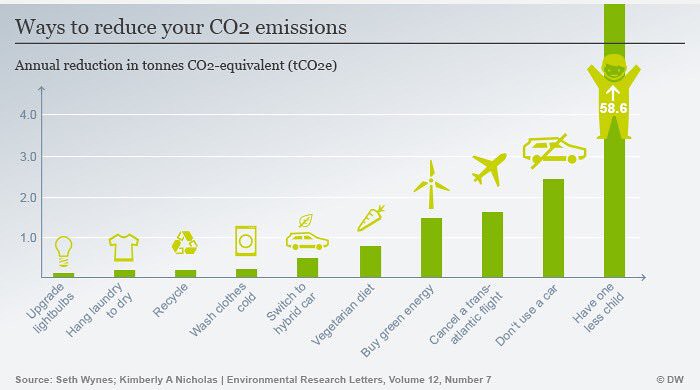The Inconvenient Truth of Modern Civilization’s Inevitable Collapse

“My early death by fossil fuel reflects what we are doing to ourselves.” ~ David Buckel
Today's global consumption of fossil fuels now stands at roughly five times what it was in the 1950s, and one-and-half times that of the 1980s when the science of global warming had already been confirmed and accepted by governments with the implication that there was an urgent need to act. Tomes of scientific studies have been logged in the last several decades documenting the deteriorating biospheric health, yet nothing substantive has been done to curtail it. More CO2 has been emitted since the inception of the UN Climate Change Convention in 1992 than in all of human history. CO2 emissions are 55% higher today than in 1990. Despite 20 international conferences on fossil fuel use reduction and an international treaty that entered into force in 1994, manmade greenhouse gases have risen inexorably. If it has not dawned on you by now, our economic and political systems are ill-equipped to deal with this existential threat. Existing international agreements are toothless because they have no verification or enforcement and do not require anything remotely close to what is needed to avoid catastrophe. The 20 warmest years on record have been in the past 22 years, with the top four in the past four years, according to the World Meteorological Organization (WMO). Ice loss from Antarctica has sextupled since the 1970s and Greenland's pace of ice loss has increased fourfold since 2003. The Arctic ocean has lost 95% of its old ice and total volume of ice in September, the lowest ice month of the year, has declined by 78% between 1979 and 2012. With grim implications for the future, Earth's air conditioner —the cryosphere— is melting away.An article from a few months ago lays bare the reality that throughout the past two hundred years and with recent "alternative" or "renewable" energy sources, humans have only added to the total energy they consume without ever having displaced the old, polluting ones. An alternative energy outlook report by Wood Mackenzie foresees that even in a carbon-constrained future, fossil fuels would still make up 77% of global energy consumption in 2040. The world economy remains hopelessly tethered to fossil fuels. We are kidding ourselves if we think there will be any sort of orderly transition to sustainability with which modern civilization appears to be wholly incompatible. We are, as Nate Hagens says, energy blind.
Modern civilization has become so intertwined with petroleum-based products that their remnants are now found in our excrement. It seems no living thing can escape microplastics, not even the eggs of remote Arctic birds. This should come as no surprise if you look at the scale of the problem. Plastic production has grown from 2 million metric tons in 1950 to roughly 400 million metric tons today(more than 99% of plastics made today are with fossil fuels and only a tiny fraction of it recycled). There are five massive oceanic gyres filled with pelagic plastics, chemical sludge and other human detritus; one of the these gyres, named the Great Pacific Garbage Patch, is three times the size of France and growing exponentially. The health and environmental effects are grim; organized society may not even be around to examine the long-term effects of these persistent synthetic materials:
"Health problems associated with plastics throughout the lifecycle includes numerous forms of cancers, diabetes, several organ malfunctions, impact on eyes, skin and other sensory organs, birth defects" and many other impacts, said David Azoulay, a report author and managing attorney at the Center for International Environmental Law..."And those are only the human health costs, they do not mention impacts on climate, impacts on fisheries or farmland productivity."
Making things more efficient and convenient has its limits, but humans keep trying to beat the consequences of Earth's dwindling natural resources while ignoring the environmental costs. Jevons paradox be damned! To make matters worse, the fossil fuel industry has employed a well-financed and highly effective global disinformation campaign to confuse and sow doubt in the public mind about the reality of climate change. And to top it all off, we have a leader who reinforces the ignorance of climate change deniers:

It's a cruel irony that this President's emergency declaration for building a border wall comes at a time when migration from Latin America is near a 40-year low and the majority of those now seeking asylum are families fleeing climate change-related disasters. This President and the craven politicians who line up behind him are an abomination! At a time when compassion, cooperation, and scientific reasoning are needed to deal with the multiple crises we face, politicians are instead conjuring up xenophobia, racism, and conspiracy theories. As inequality grows and the once-stable climate continues to unravel, expect the super-rich to barricade themselves behind heavily fortified mansions while treating climate refugees and the most vulnerable among us with extreme prejudice. A new study shows increasingly severe weather events are fueling the number of ‘food shocks’ around the world and jeopardizing global security:
These “food shocks” —or, sudden losses to food production— are hitting local communities hard, in addition to impacting the global economy, with long-term implications. “Critically, shock frequency has increased through time on land and sea at a global scale,” the study notes. “Geopolitical and extreme-weather events were the main shock drivers identified, but with considerable differences across sectors.”
Douglas Theobald, in his study at Brandeis University, calculated that there is less than a 1 in 102,860 chance that all life did not arise from a common ancestor. In other words, humans are related to all life on Earth and share much of their DNA with other organisms. Despite earning the title of 'superpredator', humans are dependent on intact and functioning ecosystems. Our chances for long-term survival are ultimately tied to the health of the planet, yet we are carrying out ecocide on a planetary scale. Being a mere 0.01% of all life on Earth, humans have managed to destroy 50% of wild animals in just the last fifty years and 83% since the dawn of civilization around 3,000 B.C.. Who knows how many plant species have gone extinct:
Hawaii is losing plant species at the rate of one per year, when it should be roughly one every 10,000 years. “We have a term called ‘plant-blindness’... People simply don’t see them; they view greenery as an indistinguishable mass, rather than as thousands of genetically separate and fragile individuals..."
The bedrock of our food, clean water and energy is biodiversity, but its loss now rivals the impacts of climate change. Without biodiversity, our food sources, both plants and animals, will succumb to diseases. Microbes and hundreds of different life forms interact to make soils fertile. Without them, soils will be barren and unable to support life. Monocultures can only be held together through artificial means(fossil fuels, inorganic fertilizer and toxic pesticides) and are highly vulnerable to diseases, yet industrial monoculture farming continues to dominate the globe. Most Worrisome are the recent studies indicating that biodiversity loss raises the risk of 'extinction cascades'. Insect numbers, the base of the terrestrial food chain, are in steep decline and starfish, a common keystone species in coastal ecosystems, are facing extinction due to some sort of wasting disease likely caused by climate change:
“Many of these outbreaks are heat sensitive. In the lab, sea stars got sick sooner and died faster in warmer water... A warming ocean could increase the impact of infectious diseases like this one...We could be watching the extinction of what was a common species just 5 years ago."
And here is Professor Stephen Williams discussing the recent mass death of Australia's flying fox bats in which 30,000 —a third of their remaining population— died in a single extreme heat wave:
"A lot of tropical species are much closer to the edge of the tolerances, so they very much are the 'canary in the coalmine' for the world in what's going to start happening with climate change...The fact that we're now seeing things endangered occur in places that you would've thought to be pretty secure, that's the scary bit...I suspect the next wave of extinctions is going to be mostly due to extreme events — extreme climate events like heatwaves."
These disturbing headlines indicate to me that the Sixth Mass Extinction is gathering pace and the real stock market underlying our very existence and survival is crashing before our eyes!!! Four of the last five mass extinction events were preceded by a disruption of the carbon cycle. When renowned paleoclimatologist Lee Kump was asked whether comparisons to today's global warming and that of past mass extinctions are really appropriate, he ominously said, “Well, the rate at which we’re injecting CO2 into the atmosphere today, according to our best estimates, is ten times faster than it was during the End-Permian. And rates matter. So today we’re creating a very difficult environment for life to adapt, and we’re imposing that change maybe ten times faster than the worst events in Earth’s history.” Humans are recreating the past extinction known as The Great Dying at a much faster pace and at many more human-forced levels that leave no ecosystem on Earth intact.
By orders of magnitude, the human endeavor has grown much too large for the Earth to support; climate change, plastic pollution, and biodiversity loss are just a few of the symptoms of this global ecological overshoot. The people who have studied this problem for years and from every angle have come to the same conclusion —technology simply won't save us, but that won't stop humans from experimenting. By far the most effective way to reduce future emissions and resource consumption is to reduce human birth rates, yet the global population is still increasing at about 90 million people per year despite the geographic shift in fertility rates.
 Humans recognized decades ago the threats they are now facing, yet nothing was done due to political inaction and industry malfeasance which continues to this very day. The scientists who wrote The Limits to Growth decades ago were expecting our political institutions to take action back in the 1970s, but they were met with ridicule and now we stand at the doorstep of modern civilization's collapse. Political inaction and regulatory capture by the fossil fuel industry appear to be intractable barriers that have condemned the human race to a hellish future. Anyone waiting for some sort of seminal climate change event that is going to galvanize the world's leaders into action will be tragically disappointed. If seeing the world's coral reefs dying, its glaciers disappearing, permafrost melting, and the steady uptick in extreme weather and wildfire events does not spur them to action, it is much too late to hope that any single event will ever do so. The time to act would have been before we were seeing all these environmental degradations and tipping points, not afterward. There is no way to put the CO2 genie back in the bottle. The Earth cannot even begin to reach a new climate state until humans stop emitting the roughly 40 to 50 gigatonnes of CO2 per annum and stop altering and destroying global ecosystems. This fact is our daily nightmare.
Humans recognized decades ago the threats they are now facing, yet nothing was done due to political inaction and industry malfeasance which continues to this very day. The scientists who wrote The Limits to Growth decades ago were expecting our political institutions to take action back in the 1970s, but they were met with ridicule and now we stand at the doorstep of modern civilization's collapse. Political inaction and regulatory capture by the fossil fuel industry appear to be intractable barriers that have condemned the human race to a hellish future. Anyone waiting for some sort of seminal climate change event that is going to galvanize the world's leaders into action will be tragically disappointed. If seeing the world's coral reefs dying, its glaciers disappearing, permafrost melting, and the steady uptick in extreme weather and wildfire events does not spur them to action, it is much too late to hope that any single event will ever do so. The time to act would have been before we were seeing all these environmental degradations and tipping points, not afterward. There is no way to put the CO2 genie back in the bottle. The Earth cannot even begin to reach a new climate state until humans stop emitting the roughly 40 to 50 gigatonnes of CO2 per annum and stop altering and destroying global ecosystems. This fact is our daily nightmare.
A myth that many uninformed people hold is that biospheric health will quickly bounce back after we humans get our act together. Nothing could be further from the truth. Much of the damage we are already seeing is irreversible on human time scales. Positive feedbacks were already occurring at less than 1°C of warming. Many carbon sinks are on the verge of becoming or have already become carbon sources. As we race toward a nightmarish future with no realistic way to stop, we leave behind a "forever legacy" that will haunt mankind for the rest of eternity.
Get Involved
If you'd like to help with maintaining or developing the website, contact us.
Publish
Publish your stories and upcoming events on Indybay.


